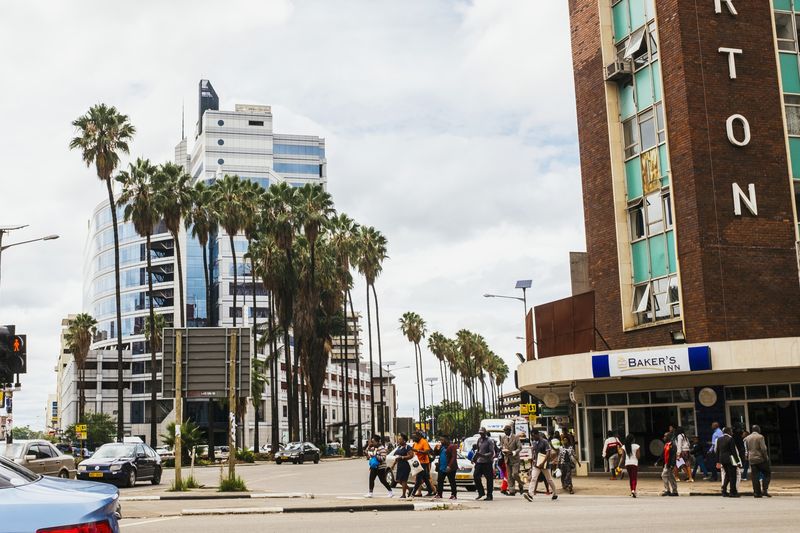
Pedestrians in downtown Harare, Zimbabwe.
Zimbabwe’s central bank has asked the International Monetary Fund to overlook the country’s shortcomings in achieving fiscal targets and allow a program to help restore the economy to run its course.
Eddie Cross, a member of the monetary policy committee who attended the meetings held with the Washington-based lender’s delegation on Thursday, said policy makers expected a “tough report” from the IMF team, which is in the country until Dec. 11 to review progress under a Staff Monitored Program.
“We asked them to recognize the achievements we have made in such a short space of time,” Cross said in an interview in the capital, Harare. “We urged them to recognize that our fundamentals are now sound.”
Cross said some of the achievements include a reduction in the budget deficit, the establishment of an interbank market and reducing state employee costs. An electronic interbank system will go live later this month as the central bank tries to bring transparency into the trading system. So far, 15 lenders have confirmed their participation.
However, the gains have been overshadowed by the worst economic crisis in a decade. Monthly inflation surged to 38% in October and while the statistics agency has stopped publishing an annual price-growth rate, Cross puts it at 400%. According to Bloomberg calculations, based on the statistics office’s consumer price index data, the rate was 440% in October.
A drought has also left nearly half the population of 14 million people food-insecure. Rising food costs forced the government to make an about-turn on scrapping grain subsidies. The government will shoulder this cost and it’s likely to attract scrutiny from the IMF after it called for tighter monetary measures and curbs on government spending in its last review.
The Staff-Monitored Program is seen as a precursor to getting debt relief that’s needed to restore the economy, and is due to end in March. Cross said he’s sure the IMF would “grudgingly agree” to let the program run its course.

